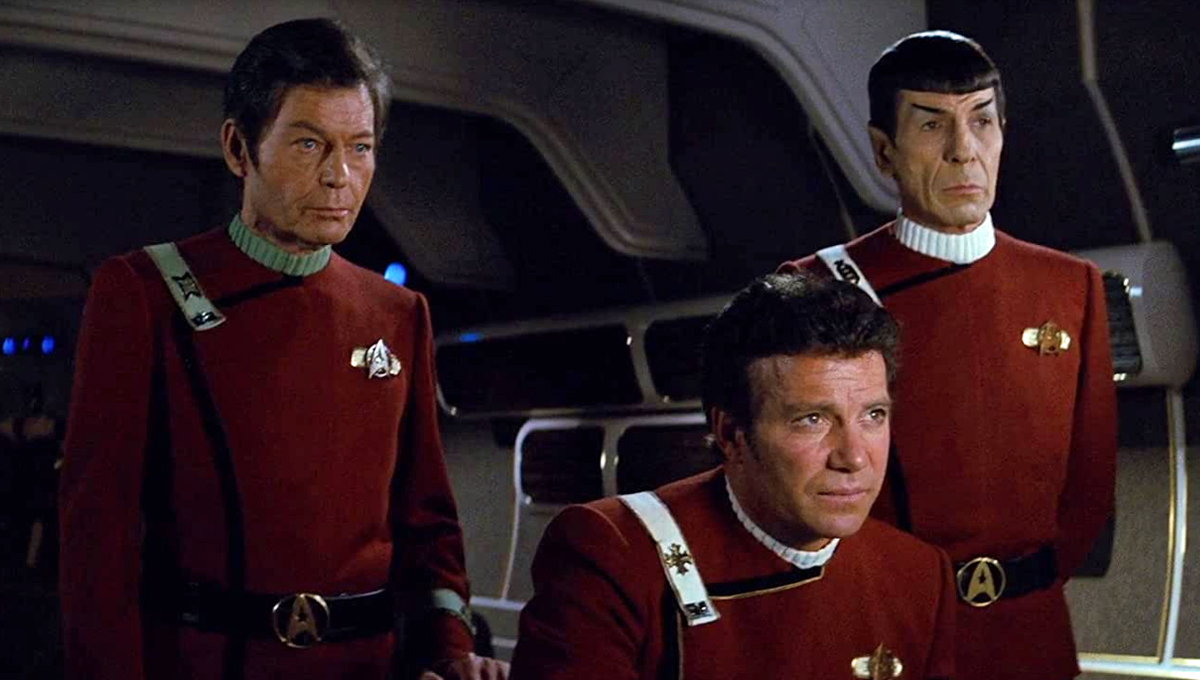A mysterious new entry in the rebooted Star Trek film franchise may be on hold over at Paramount Pictures, but its appointed writer and director, Noah Hawley, is still thinking about his approach, even as its status remains uncertain. Intriguingly, Hawley hints at a more classic-minded theme for his hibernating project, citing immortal 1982 offering Star Trek II: The Wrath of Khan as a major source of inspiration—just not in a way one might typically think.
While the imminent fourth season premiere of Hawley’s FX series, Fargo, is the current item on his docket, he did offer some interesting thoughts to Observer about his other projects, most pertinently his on-hold Star Trek movie. Indeed, as spectacle-driven CGI space battles currently dominate the venerable space franchise—in the recent films and CBS All Access television shows like Star Trek: Discovery and Star Trek: Picard—Hawley seems to appreciate the subtle thematic allure of its yesteryear offerings, pointing to Wrath of Khan in shaping his approach. While that film is widely regarded as the best Star Trek movie in terms of action, accessibility and excitement, Hawley alludes to its rarely-referenced peaceful approach to overcoming obstacles, stating:
“What I love about Star Trek is that it’s not a war story. It’s not a story in which might makes right. It’s a story about exploration. It’s a story about creative problem solving. My favorite moment in all of Star Trek is in Wrath of Khan when Kirk puts on his reading glasses to lower Khan’s shields. It’s a brief moment that is so exhilarating because he’s using the best tool he has, which is his mind. As much as I like the Chris Pine movies they were mostly about running from one end of the ship to the other to put out a fire, to stop a thing, and then before he could catch his breath he had to do something else. They’re much more action movies and what I wanted to get back to was this idea of humanity justifying existence in the universe by showing its best qualities.”
Hawley’s comments refer to an aspect of the beloved Wrath of Khan that is rarely included in discussions, namely that, despite it being centered on a vengeance-fueled rivalry between Khan (Ricardo Montalban) and Kirk (William Shatner), the film is not directly driven by spectacle, nor does it depict a direct conflict between the two rivals—who only battle by proxy of Khan’s hijacked U.S.S. Reliant and Kirk’s Enterprise. In fact, Khan and Kirk are never even physically in the same room at any point in the film. Thusly, while Khan’s quest for vengeance—following up on events from Star Trek Original Series episode “Space Seed”—may be the catalyst for the film’s conflict, the heart of the film resides in the unconventional solutions to said conflict by Kirk and the Enterprise crew, who collectively concoct a smart solution to overcome the challenge, rather than charging in head-first into a grandiose battle, thus showing, as Hawley put it, humanity’s “best qualities.”
The aspirational aspect used to fuel the franchise, especially when it was under the direct auspices of its late creator, Gene Roddenberry. Of course, this approach sometimes led to divided audiences, namely with the franchise’s first post-television revival, 1979’s Star Trek: The Motion Picture—a slow-paced, philosophically-driven, visually-trippy space odyssey that failed to resonate with casual moviegoers in the early-post-Star-Wars era. Yet, The Motion Picture does happen to enjoy a special place amongst segments of the fandom. Likewise, anecdotal reports about Hawley’s mystery Star Trek movie pointed to a new Starfleet crew dealing with a galaxy-wide viral infection; a notion that might have sealed the script’s shelved-and-reassessed fate as COVID-19 currently persists on a global level.
We, of course, will keep you updated on the untitled Star Trek project—be it under Noah Hawley or someone else—as the news arrives. However, you’ll be able to catch your next helping of Hawley-honed drama when Fargo Season 4 premieres on FX on Sunday, September 27 at 10 p.m. ET/PT.
